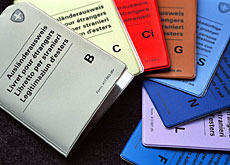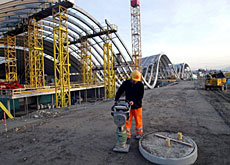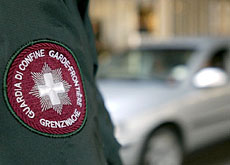Switzerland set to tighten immigration rules

New immigration rules risk leaving non-European Union nationals out in the cold.
The Swiss parliament is to debate controversial measures to curb illegal immigration and crack down on abuse in the labour market.
During this week’s special session, the House of Representatives is scheduled to discuss amendments which would endorse a two-tier immigration policy.
It would affect nationals from countries outside European Union (EU) and European Free Trade Agreement (Efta) countries who make up 46 per cent of immigrants in Switzerland.
The reforms foresee limiting immigration to high-skilled labour and people with special qualifications.
Any changes would not affect EU citizens and nationals from Efta countries (Norway, Iceland and Liechtenstein) who are already covered by existing agreements on the free movement of people.
Two-tier system
The government says the amendments to the immigration law are designed to put several measures – in place since 1998 – on a firm legal footing.
It is also keen to stress that the revisions, while tightening the screw on illegal workers and human traffickers, would also promote integration.
But three of the country’s main political parties remain unimpressed and have voiced strong opposition ahead of the debate.
The centre-left Social Democrats object to a two-tier system which gives priority to EU and Efta nationals.
“It is a bad law. It is inhumane and unfair to citizens from countries outside the EU,” said Ruth-Gaby Vermot-Mangold, a Social Democrat parliamentarian.
The centre-right Radical Party has its own concerns. Parliamentarian Philipp Müller has asked for nearly 50 changes to be made to the draft law which he claims is not thought through properly.
“The existing draft will never win voters’ approval,” he said.
The rightwing Swiss People’s Party, for its part, has called for the reintroduction of seasonal work permits for unskilled labour employed in the tourism industry and the agriculture sector.
Step forward
The Catholic charity, Caritas, has welcomed the draft law but with certain reservations.
“Compared with current regulations the new law is a step in the right direction and it will help foreigners to integrate into society,” said the organisation’s Ruedi Illes.
But Caritas and other non-governmental organisations have reservations about plans to limit to five years the right of foreign nationals to take their families to Switzerland.
Illes also criticises politicians who are unwilling to tackle the problem of illegal immigrants.
“Many illegal immigrants in this country work in a very difficult situation and there are no plans to try and find political solutions,” Illes told swissinfo.
Business community
There is also support from the country’s employers who hope stricter controls will benefit the labour market.
“All in all we agree with this long-term strategy of the government to attract skilled labour to Switzerland,” declared Ruth Derrer Balladore of the Swiss Employers’ Association
Derrer said the stagnating economy meant that many foreign workers with limited language skills and professional qualifications were facing increasing problems.
There is concern, however, in the Swiss business community about a possible rise in the number of foreigners if parliament agrees to ease restrictions on the families of immigrants.
The association of small and medium-sized enterprises has come out in favour of a proposal for temporary permits for so-called seasonal workers, but industry has voiced scepticism.
The Senate, the other parliamentary chamber, is due to discuss the amended law at a later date.
swissinfo, Urs Geiser
Some 1.5 million foreigners live in Switzerland, making up more than 20% of the resident population.
One in four workers is a foreign national.
The construction industry and the health sector rely heavily on foreign workers.
Just over half the immigrants in Switzerland come from EU and Efta countries.
The draft law aims to regulate immigration from countries outside EU and Efta countries.
The government wants to introduce a dual immigration system, promote integration and crack down on illegal immigration, moonlighting, and human trafficking.
Three of the main parties have threatened to reject the bill saying the planned measures do not go far enough, or because they argue the amended law would be discriminatory.

In compliance with the JTI standards
More: SWI swissinfo.ch certified by the Journalism Trust Initiative













You can find an overview of ongoing debates with our journalists here . Please join us!
If you want to start a conversation about a topic raised in this article or want to report factual errors, email us at english@swissinfo.ch.